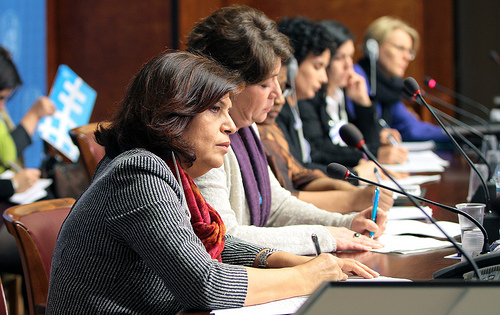France is still a country which uses the everyday expression “du travail d’arabe” (literarily ‘Arab’s work’) to refer to botched or poor quality work. A country that is so removed from the violence it inflicts onto its racial minorities that it has no qualms using this expression as the title of one of its movies whilst simultaneously denying all responsibility for the hurt, tensions and offence this causes. A country where just a few years ago, the appointment of the first ever Black newsreader, Harry Roselmack, on the national channel TF1 (the equivalent of BBC1), caused demonstrations and uproar because, wait for it… he was Black. A country that still bans all-Black cast movies.
“Hatred breeds hatred”: Charlie Hebdo, marginalisation and terrorism
(2) Laila Lalami
What happened in Paris on November 13 has happened before, in a shopping district of Beirut on November 12, in the skies over Egypt on October 31, at a cultural center in Turkey on July 20, a beach resort in Tunisia on June 26—and nearly every day in Syria for the last four years.
? To Defeat ISIS, We Must Call Both Western and Muslim Leaders to Account
(3) Malak Mattar
Malak Mattar is a Palestinian from Gaza and just 15 years old, but she is old beyond her years, having lived through three major attacks on her home. And her latest painting is a gesture of sympathy with those suffering in Paris after the terrorist rampage there. “I love Paris because it symbolizes happiness to me,” she says. “I feel sorry about what's going on there now, so I painted this.”
(4) Nabila Ramdani
French Algerians are still encouraged to stay out of tourist Paris. Curfews are regularly imposed on the estates, with armoured vehicles filled with paramilitaries moving in during disturbances. When particularly heavy rioting broke out in 2005, the then interior minister, Nicolas Sarkozy, imposed a state of emergency.
(5) June Jordan
Didn’t you read the leaflets that they dropped
from their hotshot fighter jets?
They told you to go.
One hundred and thirty-five thousand
Palestinians in Beirut and why
didn’t you take the hint?
Go!
There was the Mediterranean: You
could walk into the water and stay
there.
What was the problem?
(6) Medea Benjamin
The U.S. government must break with the intolerant and murderous monarchy out of which al-Qaeda and ISIS have spawned. And we call on all groups that take Saudi money—from think tanks to universities to NGOs to PR firms—to stop accepting Saudi funds. Breaking with the Saudi regime is one concrete, non-violent act we can take to stop the spread of extremism and make the world a safer place.
